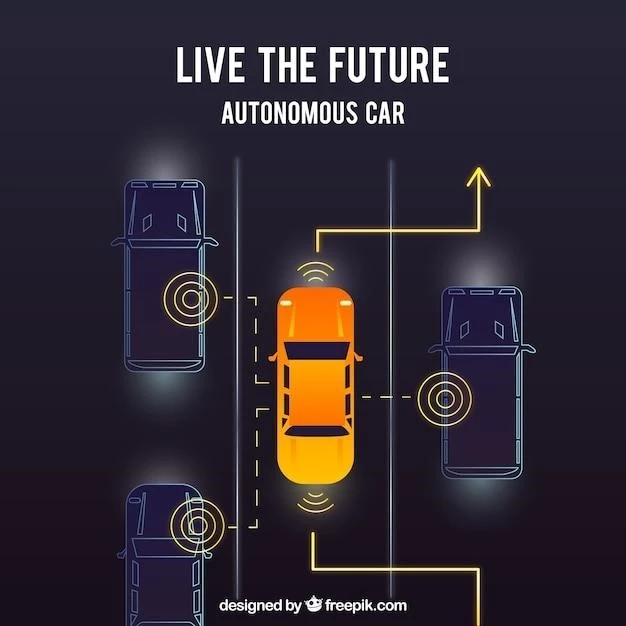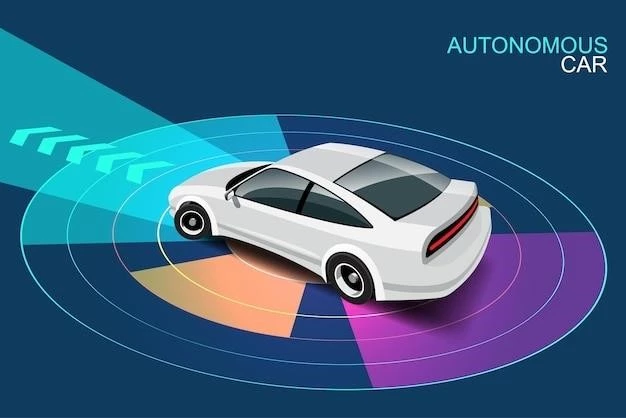The automotive industry is undergoing a radical transformation‚ and at the heart of this change is the rise of autonomous vehicles. These self-driving cars‚ trucks‚ and even buses promise to revolutionize the way we travel‚ commute‚ and interact with our surroundings. While the technology is still in its early stages‚ the potential impact of autonomous vehicles is immense‚ and I‚ for one‚ am excited to be a part of this journey.
My Personal Experience: A Glimpse into the Future
I recently had the opportunity to experience the thrill of riding in a self-driving car. It was a surreal experience‚ watching as the car navigated busy city streets with remarkable precision. The car’s sensors seemed to perceive its surroundings with an uncanny awareness‚ seamlessly adjusting its speed and direction to avoid obstacles and navigate traffic. I felt a sense of liberation‚ knowing that I wasn’t responsible for the wheel. The experience opened my eyes to the potential benefits of autonomous vehicles.

The Promise of a Safer and More Efficient Future
Autonomous vehicles hold the promise of a safer and more efficient future. Human error is a leading cause of car accidents‚ and self-driving cars have the potential to significantly reduce these accidents. They can react faster than humans‚ anticipate potential hazards‚ and maintain a constant state of alertness.
Furthermore‚ autonomous vehicles can optimize traffic flow and reduce congestion. By communicating with each other and with traffic infrastructure‚ they can coordinate their movements‚ leading to smoother traffic patterns and shorter commute times. This‚ in turn‚ can reduce fuel consumption and carbon emissions‚ contributing to a cleaner and more sustainable environment.

Challenges and Concerns
While the future of autonomous vehicles is bright‚ there are also challenges and concerns that need to be addressed.
- Ethical Considerations: How will autonomous vehicles make decisions in complex situations‚ such as unavoidable accidents? Who is responsible if a self-driving car is involved in an accident?
- Legal and Regulatory Frameworks: Existing laws and regulations need to be adapted to accommodate autonomous vehicles. This includes issues such as liability‚ insurance‚ and data privacy.
- Job Security: The widespread adoption of autonomous vehicles could lead to job losses in the transportation sector‚ such as truck drivers and taxi drivers. It is crucial to address this potential impact through retraining programs and other initiatives.
- Cybersecurity: Autonomous vehicles rely on sophisticated software and communication systems‚ making them vulnerable to cyberattacks. Robust cybersecurity measures are essential to prevent malicious actors from interfering with the operation of these vehicles.
A Collaborative Future
The development and implementation of autonomous vehicles require a collaborative effort between governments‚ industry players‚ and researchers. It is crucial to develop ethical guidelines‚ address legal and regulatory challenges‚ and ensure the safety and security of these vehicles. By working together‚ we can navigate the challenges and unlock the immense potential of autonomous vehicles for a better future.
Conclusion
Autonomous vehicles are poised to transform the automotive industry and the way we live. Their potential to improve safety‚ efficiency‚ and sustainability is undeniable. While challenges remain‚ I am confident that through collaboration and innovation‚ we can create a future where autonomous vehicles enhance our lives and contribute to a more prosperous and sustainable society.










